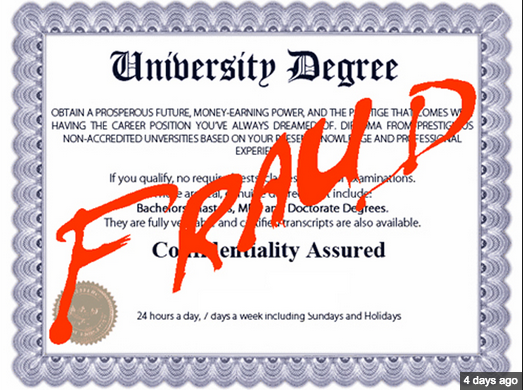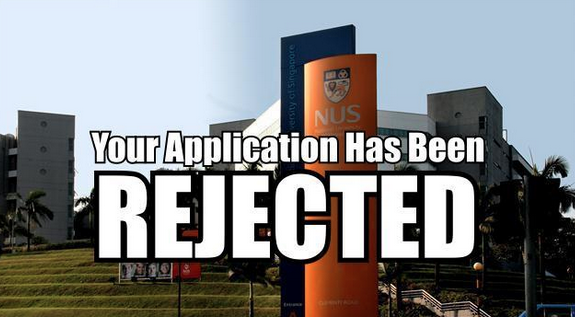Some of you might have heard the breaking news recently about IDA having hired an employee with a fake MBA. Combining Singaporeans’ unhappiness over losing jobs to foreigners with our struggle with high tuition fees in education, it is no wonder the locals are unhappy with this matter.
Locals losing jobs to foreigners is bad enough, but losing jobs to foreigners who have faked their “superiority” to us?
I highly doubt that IDA’s response was crafted by a PR professional, or if so, then that person must have been not that good at his/her job. A good PR response is supposed to help you mitigate the crisis, not escalate it further. But take a look at what happened:
1. IDA defended their hire by claiming they hired her based on her degree, which they stated was from a “reputable university”
Not very wise, because this happened next.
 |
| Credits: TR Emeritus |
Maybe they forgot to do their due diligence before they searched (not a good PR practice), or were they trying to get away with it?
2. IDA angered more netizens when they announced they would “actively moderate comments” on their Facebook
There were many ways this could have been phrased better, but I won’t give out free advice here. After all, I was informed by a reader previously that one of Gushcloud’s top influencers, Eunice Annabel, used my remediation advice without permission nor giving due credit. (Now while I have no evidence to claim this, but trust me when I say my article went up hours before her apology was posted. I can also assure you, that if said blogger wishes to sue me for this, I have screenshot evidences with timestamps to prove this 🙂
IDA is not the only one. NUS also drew flak not too long ago for having hired Associate Professor Anoop Shankar, whose false credentials came under fire when he was handpicked by West Virginia University to chair their epidemiology department which would spend taxpayers’ money – tens of millions, in fact.
 |
| Credits: NBC News. It is a pretty interesting read if you have the time. |
Ok, you know Budget Babe isn’t going to leave you without some advice, so here goes:
In short, what can you do to stand out from the foreigners?
1. Be more realistic about your salary expectations.
Many Gen Y graduates tend expect high pay right from the start. Foreigners, on the other hand, are fine to work with less.
While we grouse about our take-home pay after 18% deductions, don’t forget either that your employer also has to pay additional 16% CPF contributions whenever they hire a Singaporean. Financially speaking, it makes more sense to hire a foreigner, doesn’t it?
I personally feel it is better to go in with a competitive rate, and then rise up the ranks accordingly. I’ve also shared on this before (which you can read here).
2. Demonstrate an open heart and a willingness to learn.
Too many Singaporeans like to go on and on about their achievements, but hey! The job interview is NOT a one-way pitch, it is meant to be a two-way dialogue on what HR is looking for and how you can fit that role. Most foreigners, on the other hand, are quieter about their achievements, and let their results speak for themselves.
While we need to of course strike a good balance between that, remember the age-old classic that empty vessels make the most noise.
Also, some Singaporeans are dreadfully hard to teach, because they’ve grown up as the darlings of their family and are therefore convinced that they are truly a gem. Singaporeans also tend to be a little more arrogant sometimes.
Foreigners, on the other hand, tend to demonstrate a more earnest attitude in many interviews. One of my previous bosses hired foreigners to assist me, and they were seriously amazing. Their responsiveness and hard work was something I didn’t see compared to a Singaporean worker. Although sometimes their work had more mistakes, but I felt happier correcting them and guiding them because they were so eager to learn.
Contrast this to when I try to teach my sister, and she shows me attitude instead, or even argues with me and insists she’s right, I’m wrong.
3. Become an expert in your subject matter.
There’s tons of books and courses out there so there really is no excuse. If you speak smart, you come across as smart too.
Too often HR managers encounter candidates with a brilliant resume, but who fare badly in a face-to-face interview context.
4. Continuously upgrade yourself.
With more money being allocated in this year’s Singapore Budget for education, please make full use of it and upgrade your skills before they become outdated.
We’re living in a very fast-paced society. Those who can keep up, win. Those who can’t, lose.
That’s how these foreigners with fake degrees got hired, don’t you think? They were smart enough to recognize that Singapore, as a meritocracy, values paper qualifications, and so while us locals were busy studying for our degrees, they went ahead to buy “fake” degrees instead. After all, our educational certificate is the first step to the door, isn’t it? Their HR managers didn’t bother to check, nor did the company, and so these people managed to build a flying career based on these false credentials.
Unfortunately, their time is over now.




















